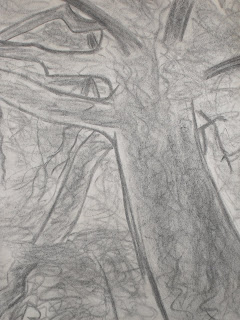A life lived
A life gifted
By God the God we love
The omnipotent
Of a universe beyond beauty and comprehension
He loves the people he made
And we shall love him back
compassion and confession
We fight to be with God
We love to know his son
Jesus our savior
A God among idols
His people turned him away
Committing evil in their hearts
And sin staining their hands
Gods Love forgotten
Jesus came to save the perpetually stupid
And incessantly mistaken children of God
So one day eternal life may be theirs
Life among men is fine
Life seeking god is good
Life living for God is great
Life living with God is unforgettable, and eternal
Sunday, September 19, 2010
Thursday, September 16, 2010
Pen the Planet
Labels:
Aaron Ytterberg,
drawings,
fish,
pen,
pen the planet,
planet,
random,
trees,
whacked
windmill in the clouds
this is just another simple drawing that i have done. i don't really know why i did this drawing but i did it
Labels:
Aaron Ytterberg,
art,
clouds,
drawings,
marker,
marker drawings,
personal art,
windmill
personal art
i really wasn't sure what of my art to post at this time. I have a whole lot and i can never seem to figure out which pieces look the best
Labels:
Aaron Ytterberg,
black and white,
charcoal drawings,
drawings,
personal art,
trees
Sunday, September 12, 2010
a new look at how to write indirect philosophy
Okay, so lately I have been reading an awesome collection of works by a writer named Kahlil Gibran and and I have to say that what he writes is awesome. Kahlil is able to define up a major philosophical subject in a concise manner and I love it. There is one interesting piece of literature that he wrote called the seven selves. I couldn't help but think that this related a bit to ethical egoism in the sense that all but one self are thinking about rebelling inside of the person that they make up.
the first six selves are:
sorrow
joy
love
hate
thought
and work
All of these selves thought about rebelling because they were so tired of the jobs that they were forced to do. And they continued to argue amongst themselves until the seventh self named the: do nothing self scorns them, "How strange that you all would rebel against this man, because each and everyone of you has a preordained fate to fulfill. Ah! could I but be like one of you, a self with a determined lot!" (Gibran 14). the reason that I say this is ethical egoism is because it brings up the idea that every self is trying to look out for itself and they were going to rebel from the whole in order to make themselves happy.
The piece of literature ends with the image that first six selves "looked with pity upon him... as the night grew deeper one after the other went to sleep enfolded with a new and happy submission" (Gibran 15). I enjoy this piece because Gibran brings up an interesting thought why try to do something when what you have should be satisfactory to begin with. I really find the the final line of what Gibran writes to be profound in what I have attained by reading his work. "But the seventh self remained watching and gazing at nothing, which is behind all things" (Gibran 15). I enjoy this because I do not think that he means literal nothingness but instead that what we have already will never be enough; we are always looking for more items and more ways to satisfy our desire to be happy.
the first six selves are:
sorrow
joy
love
hate
thought
and work
All of these selves thought about rebelling because they were so tired of the jobs that they were forced to do. And they continued to argue amongst themselves until the seventh self named the: do nothing self scorns them, "How strange that you all would rebel against this man, because each and everyone of you has a preordained fate to fulfill. Ah! could I but be like one of you, a self with a determined lot!" (Gibran 14). the reason that I say this is ethical egoism is because it brings up the idea that every self is trying to look out for itself and they were going to rebel from the whole in order to make themselves happy.
The piece of literature ends with the image that first six selves "looked with pity upon him... as the night grew deeper one after the other went to sleep enfolded with a new and happy submission" (Gibran 15). I enjoy this piece because Gibran brings up an interesting thought why try to do something when what you have should be satisfactory to begin with. I really find the the final line of what Gibran writes to be profound in what I have attained by reading his work. "But the seventh self remained watching and gazing at nothing, which is behind all things" (Gibran 15). I enjoy this because I do not think that he means literal nothingness but instead that what we have already will never be enough; we are always looking for more items and more ways to satisfy our desire to be happy.
Subscribe to:
Comments (Atom)



